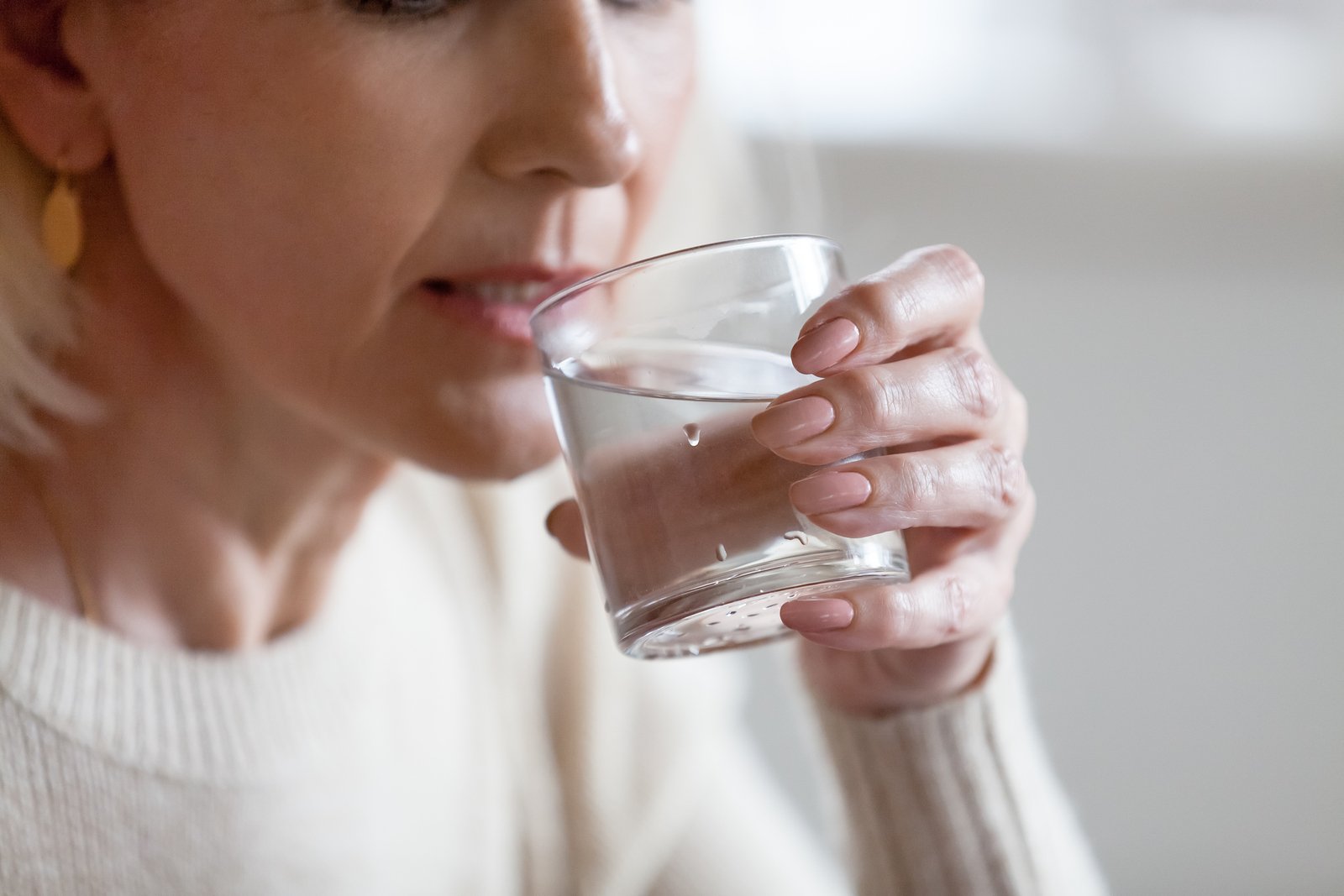Could dehydration be a problem for you?
If there is not enough water in the body, minerals could become unbalanced which in turn may lead to health problems.
Dehydration is the term used when there is not enough water in our body for it to function as it should. It can be caused by simply not drinking enough water, excessive sweating, diarrhoea or vomiting.
It is important to know how to recognise if we are dehydrated so we can do something about it.
Dehydration – common signs
Signs that we are dehydrated are:
- A dry or sticky mouth – thirst. Feeling thirsty indicates that we are already beginning to dehydrate.
- Dark yellow urine or not urinating as much as usual
- Dizziness or feeling light-headed
- Headaches
- Feeling tired, irritable or confused
- Skin that feels dry, cool and shrivelled or sunken eyes
- Heart beats more rapidly or breathing more quickly
Why do we dehydrate?
Not drinking enough water is the main cause of dehydration but we can also dehydrate if we are suffering a bout of diarrhoea, vomiting or from excessive sweating.
Some people are more at risk of dehydration than others and there are a number of reasons why this is.
- Size matters The smaller our body the more likely we are to dehydrate so children and infants are particularly vulnerable.
- Getting older Ageing means that our bodies aren’t as quick to respond to changes in temperature and therefore not as efficient at conserving water. We may also not notice our thirst as we did before. Some of us may need to be reminded to eat or drink.
- Taking medicine Our risk of dehydration may increase if we are taking medications such as blood pressure medicines or diuretics. Our bodies may dehydrate as these make us sweat or urinate more than usual.
- Becoming ill If we have a bout of diarrhoea or a higher temperature than normal then we must take care to drink more fluids – water in particular. Those suffering from kidney disease, diabetes, heart failure and dementia should especially drink more.
- Taking exercise We sweat more when we exercise and so need to stay hydrated. The more intensive the exercise the more we will sweat.
- The higher we climb At more than 2,500 meters above sea level the body has to breathe faster to keep oxygen levels stable in the blood.Faster breathing means exhaling more water vapour so we must endeavour to keep fully hydrated.
- The hotter it is We sweat more when it is hot and humid. If we don’t drink enough fluids then our body cannot sweat enough to keep cool. If our body is too hot then we can suffer heat cramps, exhaustion and even heatstroke which can be life-threatening.
Preventing dehydration
The best way to prevent our bodies dehydrating is to regularly drink water through the day. Other drinks can help but alcohol and caffeine are best avoided as they are both diuretics. A diuretic is something that makes you go to the toilet more often, which means that you lose water from your body much more quickly.
Disclaimer
All content on Silversurfers.com is provided for general information only, and should not be treated at all as a substitute for the medical advice of your own doctor or any other health care professional. Silversurfers will not be responsible or liable for any diagnosis made by a user based on the content on www.silversurfers.com and we are also not liable for the content of any external websites or links from or to Silversurfers to any other websites. Please always consult your own doctor if you’re in any way concerned about any aspect of your health.
Melina - Assistant Editor
Latest posts by Melina - Assistant Editor (see all)
- Top tips for hay fever sufferers - April 14, 2024
- Paysan Breton Cream Cheese Breakfast Wraps - April 12, 2024
- 4 Homemade Sweet Treats for Easter - March 24, 2024
- Playground Memories - March 10, 2024
- The invasion of the duvet: the ’10-second bed’ - February 20, 2024





















